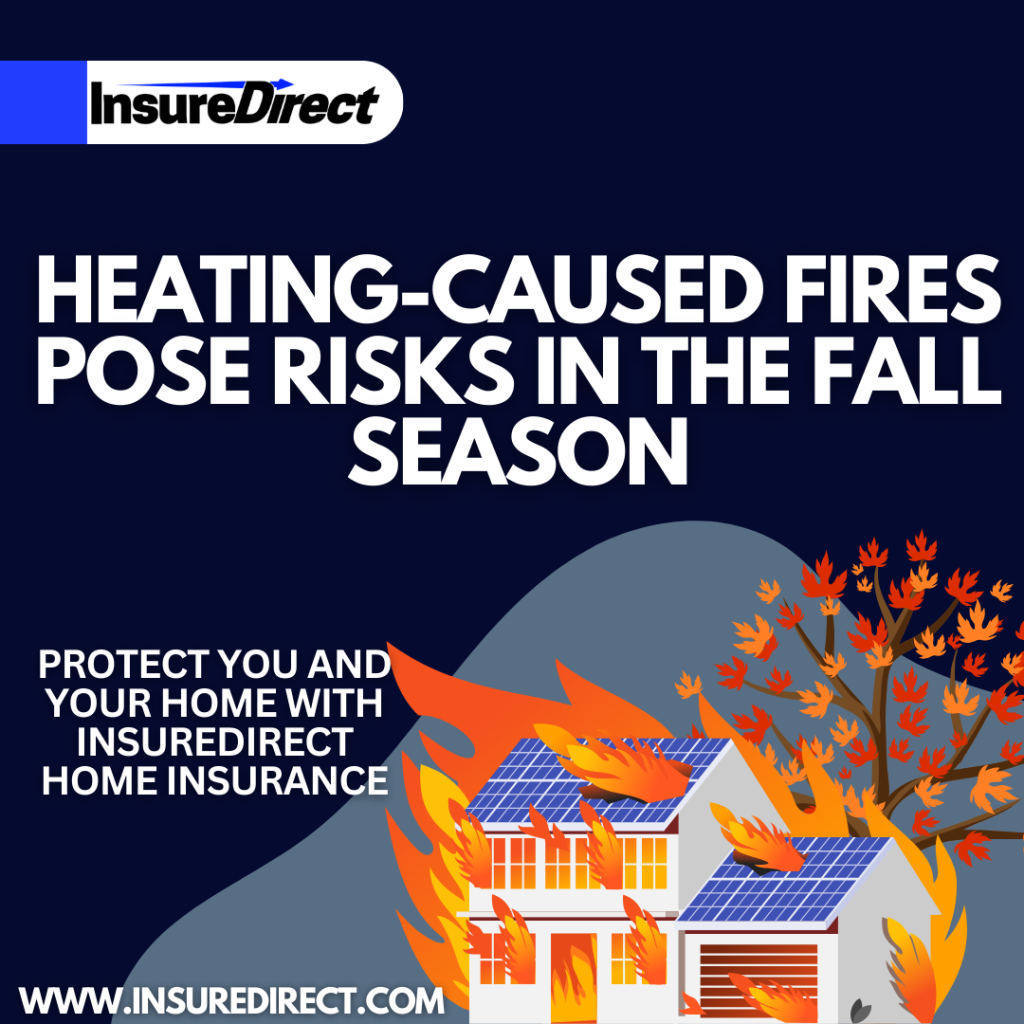Cozy, But Risky
Autumn’s here. Leaves are falling, the evenings are getting cooler, and homes everywhere switch on heaters. Warmth feels great, but hidden danger lurks. Each year, heating-related fires pose serious threats—and ignoring precautions can be costly, sometimes far beyond the chill of winter.
Did you know? Heating-caused fires are the second leading cause of home fires in the U.S., accounting for about 14% of all residential fires. This isn’t someone else’s problem. Water heaters, stoves, fireplaces, and both portable and fixed heaters can all spark catastrophic events.
Putting the Numbers Into Perspective
Between 2008 and 2010, there were 50,100 heating-related fires per year, on average. These weren’t minor incidents. Property losses were significant, with annual damage totaling approximately $326 million, alongside 150 deaths and 575 injuries each year.
Peak hours? Unsurprisingly, fires spike between 5 p.m. and 9 p.m.—the hours when families are home from work, cooking dinner, and turning on heaters to ward off the chill. Shockingly, 87% of these fires involve confined heating devices like fuel burners, flues, and chimneys.
Heating Sources That Pose Dangers
Many homeowners assume “new heaters are safe enough,” but small issues add up quickly:
Water Heaters: Rust, loose fittings, or pressure buildup can ignite fires.
Space Heaters: Convenient but tip over, short-circuit, or touch combustible surfaces.
Fireplaces: Dirty chimneys or wood stoves can catch creosote, leading to blazes.
Central Heating Systems: Gas or oil furnaces can leak fuel, overheat, or develop blockages.
Even the latest models aren’t immune. Always prioritize caution.
Why Fall Is Especially Risky
Cooler evenings, falling leaves, and early darkness increase fire risks. Heaters are used more often, sometimes impulsively. Items placed too close, unattended devices, kids playing, or pets knocking over equipment can create hazards instantly.
Seasonal checks are often skipped. A flue that should have been cleaned in September may not be touched until November—by then, risk grows exponentially.
Precautionary Measures Every Homeowner Should Follow
The U.S. Fire Administration (USFA) emphasizes several preventive actions:
Annual Professional Inspections: Licensed technicians should check and clean heating equipment.
Install Carbon Monoxide Alarms: CO leaks are silent threats; alarms save lives.
Use Certified Equipment: Only purchase heaters, stoves, and furnaces with recognized safety certifications.
Maintain Clearance Zones: Keep at least 3 feet between heaters and combustibles.
Store Flammable Materials Properly: Avoid keeping firewood, paper, or chemicals near heaters.
Monitor Portable Heaters: Turn off if leaving the room or going to bed.
Check Wiring: Damaged outlets, frayed cords, or overloaded circuits are fire hazards.
Real-Life Heating Fire Scenarios
Lancaster Home: A space heater tipped on a rug, starting a fire. Property damage was covered by insurance, but the family was terrified.
Philadelphia Apartment: A clogged chimney caused an attic fire. Damages ran into tens of thousands of dollars.
Harrisburg Suburb: Faulty water heater wiring ignited wall insulation. Quick action prevented total loss, but without insurance, financial ruin was possible.
These are not rare occurrences—they are wake-up calls.
Why Homeowners Insurance Is Essential
Even with vigilance, accidents happen. Homeowners insurance provides financial protection when disaster strikes. InsureDirect recommends:
Check Coverage Limits: Ensure your policy covers fire, smoke, water, and debris removal.
Update Personal Property Lists: Include electronics, valuables, and collectibles for smooth claims.
Consider Add-Ons: Flood, fire, or umbrella coverage can supplement standard insurance.
Get Professional Advice: Agents can customize policies to home type, location, and specific risks.
Extra Safety Tips
Clean Chimneys & Flues: Creosote buildup is a common fire starter.
Maintain Furnace Filters: Clean filters prevent overheating and improve airflow.
Test CO & Smoke Alarms: Batteries die; alarms fail. Monthly checks save lives.
Educate Family Members: Everyone should know evacuation routes, extinguisher locations, and emergency contacts.
Keep Fire Extinguishers Handy: Kitchen, garage, and near fireplaces are key spots.
Emerging Risks in Modern Homes
Modern homes face new fire hazards:
Smart Devices: Malfunctioning thermostats or heaters can overheat.
Holiday Decorations: String lights near flammable items pose a risk if left unattended.
Candles & Indoor Fires: Combined with heaters, they can escalate danger.
Alternative Heating Methods: Pellet stoves, gas logs, and portable units need proper maintenance.
Preparation is crucial—prevention beats regret.
Conclusion: Don’t Gamble With Your Home
Autumn is cozy, but heating-related fires are serious. One neglected chimney, overloaded outlet, or tipped heater can result in catastrophic loss. Safe practices, proper equipment, and a solid homeowners insurance policy together protect your home, belongings, and peace of mind.
Contact InsureDirect for Protection
InsureDirect.com
Corporate Home Office
618 South Broad Street
Lansdale, Pennsylvania 19446
Email: contact@insuredirect.com
Phone: (800) 807-0762 ext. 602
Stay safe at home this fall with complete coverage from InsureDirect—because your home deserves only the best.

